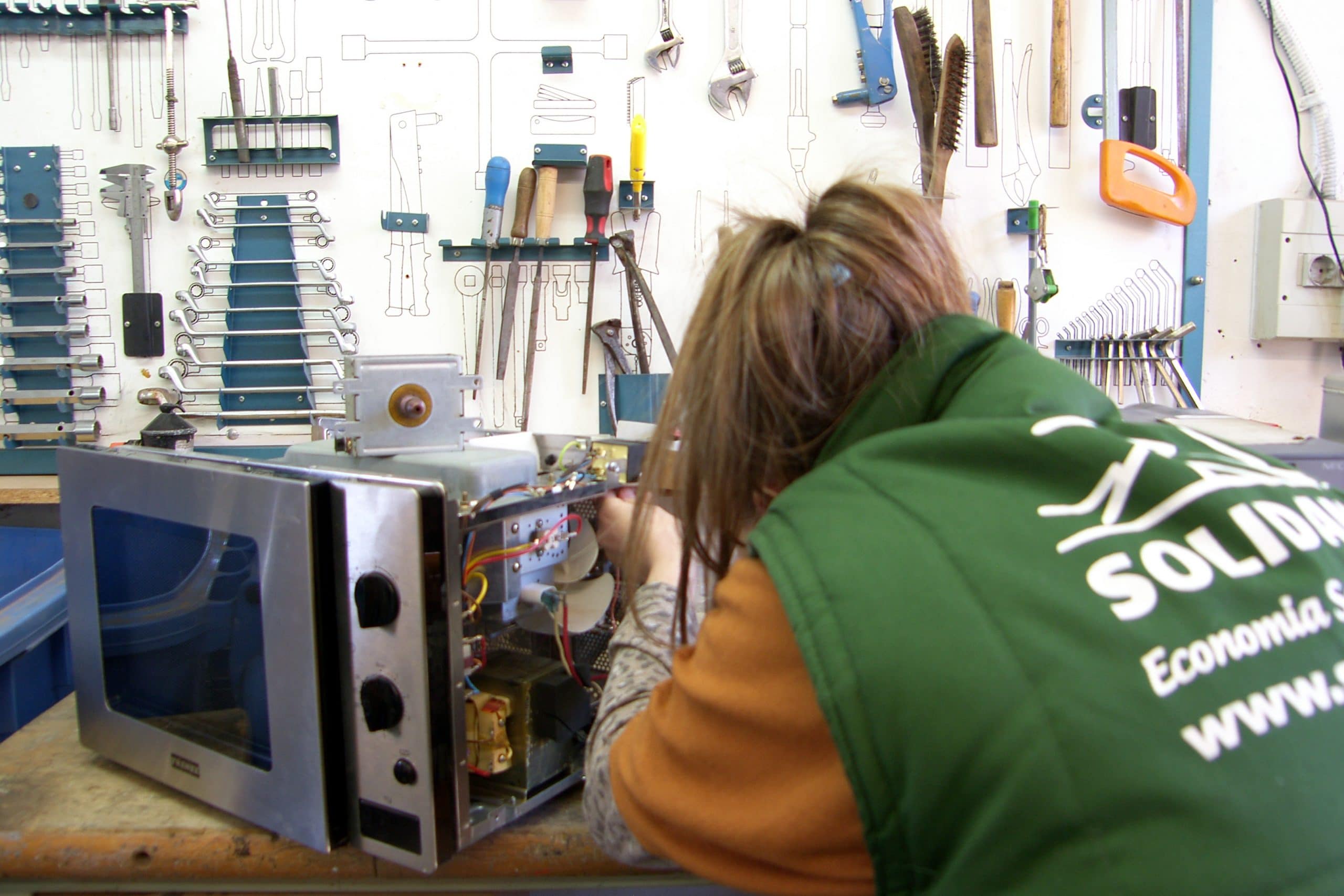Today, the EU Commission published its much-anticipated Circular Economy Action Plan (CEAP). Mathieu Rama, Senior Policy Officer at RREUSE, shared the following reaction:
“A comprehensive upstream approach ensuring products are durable, repairable and re-useable is timely. Whilst tackling design of electrical products remains a priority, we welcome indications that other product categories such as textiles and furniture will also be addressed within a new Sustainable Product Policy”.
Addressing our soaring consumption levels with actions such as ensuring a ‘Right to Repair’ through EU Consumer Law is highly commendable. Repair activities are difficult to delocalise, and supporting the sector will boost inclusive jobs and circular skills while offering citizens the option to repair rather than replace.
RREUSE welcomes the proposal to use value added tax (VAT) rates to underpin the Right to Repair mind-set.
Mathieu Rama commented, “A lower or zero VAT rate on repair services is key in improving their accessibility to consumers and should also be extended to the sale of used goods.”
Despite the very welcome ambition to boost the re-use of textiles as a key pillar of the future EU Strategy for Textiles, the lack of emphasis on the need for separate re-use targets at EU level is a missed opportunity.
Under its new circular economy strategy and following the footsteps of Spain and Flanders, France recently announced its plan to set targets for re-use. The Commission should closely look at these cases when assessing the possibility of setting re-use and preparing for re-use targets by 2025, a legal obligation under the recently revised Waste Framework Directive. This should go hand in hand with work on creating waste prevention targets in the near future.
Finally, the explicit recognition and support for the role of social enterprises in the circular economy is a significant step to promoting an inclusive and just circular transition. In addition, the need for future circular policies to consider and assess social aspects is also a step in the right direction. Labelled a ‘pioneer’ in circular jobs, strengthening the social economy will allow the job-rich activities of re-use, repair and remanufacturing to bring increased social value through giving skills and empowering the most vulnerable.
Highlighting the European Social Fund Plus financing mechanism and the launching of a new Pact for Skills do present key development opportunities for innovative and socially inclusive circular business models. Ongoing work in the preparation of a Social Economy Action Plan, to be published in summer next year, should feed into the thought processes of actions under the new CEAP.
Over the next years, RREUSE will engage with the European Commission and stakeholders on many elements of the action plan in a bid to scale up the creation of green and inclusive jobs while making the use of natural resources more sustainable.
RREUSE will publish a more detailed analysis of the action plan in due course.
Click here for the full press release (PDF)
Press contact:
Kelly Piron, Communication and Advocacy Officer, kelly.piron@rreuse.org
Picture credit: Solidanca


